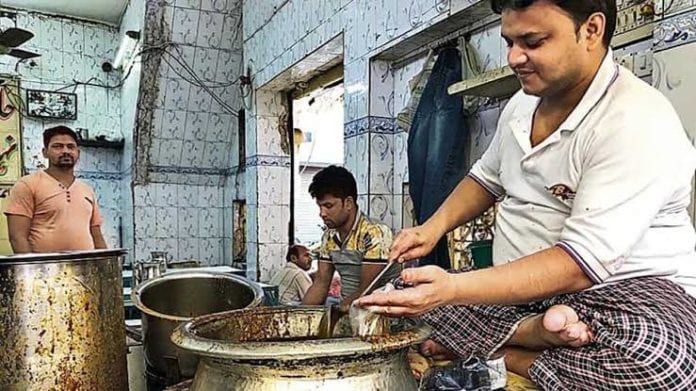The iconic eatery near Old Delhi’s Haveli Azam Khan was famous for its signature nihari ( mutton stew). But now, things are completely changed. Coronavirus pandemic caused many businesses to end. Hazi Shabrati Nihari Shop is also a victim of the prevailing pandemic.
Many bloggers and Instagrammers have talked about it. Heritage-minded walking tours too would stop by for short feasts and photo clicking sessions.
But now it’s no more. The famous Nihari shop was history. Known for its super delicious Nihari, which cooked overnight and customers enjoyed the freshly made nihari.
Due to the lockdown and acute shortage of daily eaters, the shop has now reduced to a grocery shop. The shop remains within the family but the business has alternated.
Table of Contents
The changed business
Mohammad Shuaib Ilyas, the grandson of Hazi Shabrati, the late founder who set up the eatery in 1957 shared his grief. He revealed the truth during the long lockdown phase. The only shops without any interruption were medicines, dairy products, groceries, and vegetables.
The eateries couldn’t survive in this current condition. Our cooks have already left for their respective native places. There was no way to restart Nihari cooking. The best solution for us was to open a grocery shop and we did the same, he added.
The good old days
Truly, the world has changed so swiftly. Just a few months before, this was a busy kitchen with a huge brass cauldron, or degh, replenished with piping hot nihari.
It is said that in the old days, a nihari degh would never be made to leave the fire and that the stew would be cooked deliberately, continuously, with fresh stock being added every day. No such romance existed in the Hazi Shabrati Nihari shop, at least during its final years. The degh would be washed twice daily, just before cooking nihari afresh, and a typical degh would be replaced by a new one in a month.
Before the pandemic, while the shop would routinely roll down its shutters every evening and the cooks would duly go to bed, the nihari would keep steaming in the degh, on a low fire. That all-night slow-cook tradition was precisely observed. And, every day by 8 in the morning, the local visitors would gather to taste this exotic dish. They still come but now they demand Amul butter, Kisan jam, and other factory-made commodities.
DU: DESERTED CAMPUSES, LIFE BATTLING TO SURVIVE
Creator Hazi Shabrati died 23 years before his shop underwent such a severe change. His wife, Sakina Begum, died late last year. Both lie buried in the Dilli Gate graveyard. Grandson Mr Ilyas .now poses with folded arms against the shop’s backdoor painted in Urdu saying Hazi Shabrati Nihari Shop.
UNLOCK 3: GYMS AND CINEMAS LIKELY TO REOPEN IN AUGUST WHILE SCHOOLS AND METROS MAY REMAIN SHUT
FOR MORE SUCH UPDATES FOLLOW US ON INSTAGRAM













